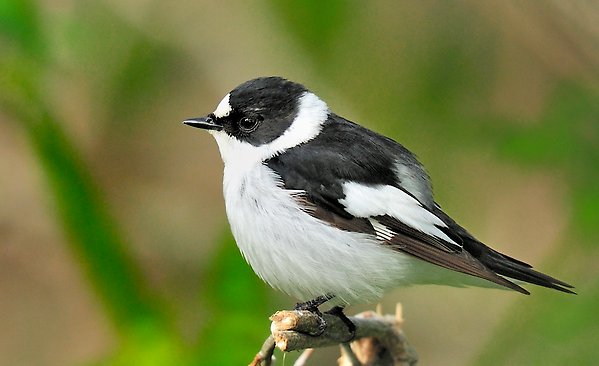Climate and health: flycatchers show the way

Flycatchers can show us the way to a better understanding of our environment and how its changes affect us. Uppsala University’s unique long-term study of flycatchers follows individual birds from cradle to grave in their natural environment. It opens up a range of opportunities to study the impact of climate change on evolutionary processes and on the spreading and impact of infectious diseases.
Human activities are currently threatening the climate and biodiversity, as well as human and animal health. These areas are emphasised in the United Nations Sustainable Development Goals and in several of Sweden’s national environmental objectives.
Detailed long-term studies of natural animal populations are extremely rare but play a tremendously important role for clarifying the biological impacts of climate and environmental change and testing key theories in ecology, evolution, medicine and genetics.
Since 1980, Uppsala University has been conducting the largest long-term study of flycatchers in Europe, on Gotland and Öland. Because of the information the study has accumulated, and the way it has been combined with modern genomic methods, the flycatcher study is now regarded as a world-leading model system for studying ecology and evolution. The study addresses a broad range of questions, such as the impact of climate change on reproduction and survival strategies, population dynamics and factors that govern biological ageing in nature. It also incorporates the spread and long-term health impacts of certain viral infections and vector-borne diseases that affect both flycatchers and humans. The strength of the study lies in the fact that it follows individual birds from cradle to grave in their natural environment. This makes it possible to gather information on the birds’ lifetime breeding success and build up complete family trees extending over many generations. As a result, the flycatcher was one of the first birds in the world whose genome could be mapped.
The availability of detailed genetic information about the flycatcher population opens up a range of unique opportunities to study the impact of climate change on evolutionary processes. Given the rapid environmental changes now in progress, the lessons that can be learned from the flycatcher study are of growing importance. For example, a warmer climate is expected to favour the spread of infections between animals and humans, which would have considerable socioeconomic consequences. More knowledge that can enable us to foresee and prevent such developments is therefore a matter of global import.
“The availability of detailed genetic information paves the way for unique opportunities to study the impact of climate change on evolutionary and biological processes.”
Göran Arnqvist, Professor of Animal Ecology
